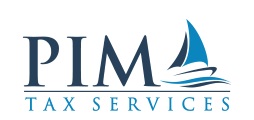Tax Season 2017 (during which we mostly prepare tax returns for 2016) is finished. I have a few clients on extension (or as Wandering Tax Pro Robert D. Flach calls them “GDEs”. – the “E” stands for extension, you can figure out the “GD” for yourself.) I also have a few clients who need to amend previous tax years, but the pace has definitely slowed.
And what a pace it was for me! Virginia Beach continues to turn out and turn up at PIM Tax Services. My client base grew dramatically from the prior year. I was grinding pretty hard for 2 months straight, and I love it! I hit quite a few of my business development milestones this year and it was very gratifying. Thank You Virginia Beach!
Last year I made a post about the most common tax errors I saw during tax prep season. I think I’ll make that an annual tradition. Not because I want to make any of my clients feel ashamed for making mistakes, but I know a lot of DIYers search for help/knowledge on the internet and I don’t mind letting them know what to watch out for. Just because you don’t have me prepare your taxes doesn’t mean I want you to overpay the government!
So without further ado – here are the top mistakes I saw during Tax Season 2017:
1. Not Treating a Rental Property as a Business. Virginia Beach is densely populated with military personnel. It’s fairly common for military members and couples to purchase a home and then receive PCS orders out of the area. For a variety of reasons many military members (and even some non-military members) decide to turn their home into a rental property. I call these “accidental” or “unintentional” landlords. They didn’t buy the house with the intention of making it a rental property, but it ended up being a rental property anyway.
The tax code is blind to your intention in this regard. The IRS does not care WHY you bought your house. The minute it becomes a rental property it is a business property, and it gets the same treatment as every other residential rental property. If the IRS is treating your property like a business, you should, too. There are significant tax advantages to doing so, and significant disadvantages for not doing so. If you don’t know what they are, then you ought to get a tax professional involved from the onset. So many people wait a few years, realize they’ve made a mess, and then come looking for help to sort it out. It’s so much easier (and cost effective) to get it right the first time.
I have written this many times, and it is still true – I have found costly mistakes on 100% of the self-prepared Schedule Es I have reviewed.
2. Not Responding Immediately to an IRS (or State) Tax Notice. The IRS scares people. There are good reasons to have a healthy respect for their authority, but some people get really rattled when they see a letter from the IRS. Sometimes they set it aside for a while, afraid to open it. Sometimes they open it, read it, and set it aside to respond to later. DON’T DO THAT! IRS notices age like bread, not wine. The longer they sit the worse they get. Not to mention independent research has shown that two-thirds of IRS notices are INCORRECT.
The IRS has a system called the Automated Under Reporting (AUR) program. The AUR system spits out IRS notices to taxpayers based on an algorithmic review of a tax return, and they are not reviewed by any person at the IRS before they are sent. Most of them are wrong, but they all have a deadline by which you must respond or further IRS action will be taken. Don’t sit on them, take action immediately.
3. Sloppy Record Keeping. I’ve written about this a few times, but it bears repeating: Tax records are for YOUR benefit. Here’s why – the courts interpret the internal revenue code to mean that ALL your income is taxable. Any adjustments, deductions, or tax credits you might receive are bestowed upon you through legislative grace. It is the taxpayer’s responsibility to prove they are entitled to any adjustment, deduction, or credit.
May people seem to believe it is the other way around – that they are entitled to claim adjustments, deductions, and credits and the IRS must prove they are not entitled to claim them. It absolutely does not work that way. If you are audited and you cannot document your qualification for a deduction or credit the IRS will disallow it and charge you additional taxes, interest, and possibly penalties. Keep good records!
4. Planning Too Late. Every year I am contacted in April and asked what can be done about reducing someone’s tax burden for the prior year. While there may be a couple of options available, the best opportunities have come and gone. You plan by looking out the windshield at where you are going, not looking in the rear view mirror at where you’ve been. If you want to do some tax planning – and I think everyone should – then call me in April about THIS year, not last year!
5. Those Damn Charity Receipts. Pardon my French, but you’ve seen them. They are everywhere. Goodwill, CHKD, DAV, Eggleston, Vietnam Veterans, etc. they all offer the same deal. You drop off items you no longer want, they hand you a blank receipt for it. Then 8 months later you hand that blank receipt to me to prove you made a charitable donation because you (rightfully) want the deduction from your taxes. The problem is I wasn’t there when you made the donation. I don’t know if you gave them one old sock or an oak bedroom suite.
YOU have to fill out the rest of that receipt. The charity you gave the items to isn’t allowed to fill it out – YOU have to do it. You have to write down what you gave them, what its value was, and how you determined that value. (hint: it’s usually “Thrift Store Value”.)
Like I wrote above – it’s up to you to prove your right to every adjustment, deduction, and credit. That extends to the charitable deduction as well. A blank receipt is not proof that you donated anything. Fill them out!
Overall I had a great tax season. PIM Tax Services continues to grow and I find it very exciting. I made a lot of new friends/clients this season and – even more fantastic – nearly all of my 2016 clients returned in 2017. I’m always looking for ways to improve and become more efficient. Helping people head off their tax issues before they come to see me is one way I hope to accomplish the delivery of affordable tax planning and preparation services to as many people as possible.
If you have any questions, please contact me.


